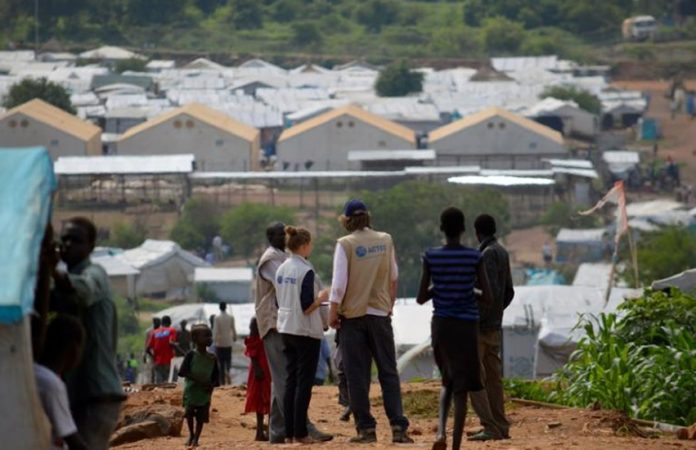The new country of South Sudan is blessed with oil, water, and a safari bonanza: one of the largest, most stunning animal migrations on earth. But without roads, laws, or infrastructure, can Africa’s youngest state turn potential into stabilizing profit? Patrick Symmes joins the adventure.
Day one is Thursday, and we roll out of Juba, South Sudan, in the ambassador’s official ride, a Toyota Land Cruiser in spotless white. The driver’s door is showered with gold stars across a familiar sky blue flag and the words L’UNION EUROPÉENNE, the heraldry of someone who matters in this vast, imperiled infant of a nation.
Then someone is Sven Kuhn von Burgsdorff, a lean, 55-year-old German, and ambassador, who is not the German ambassador. Sven actually holds an obscure but equivalent title, commissioner, and represents the European Union as a whole. That makes him a kind of supranational diplomat for 27 nations, with a major say in the spending of $395 million in European aid to South Sudan over the next two years. A former commando, he once toughened his feet by running barefoot in the snows of Lower Saxony and jumps out of airplanes to relax. I personally will hear him speak five languages before this trip is over. Also in the Land Cruiser are Italian photographer Marco Di Lauro and Sven’s son David, a bushy-headed 26-year-old surfer and International Medical Corps programs officer already hardened by years of rolling around Africa chasing big waves.
The ambassador has a paraglider in the back of the Land Cruiser, crammed in with camping gear, food, and bottled water. We are headed out of the dismal capital, driving south for four hours toward the Imatong Mountains, where we hope to find and summit Mount Kinyeti, at 10,456 feet the highest peak in the country. The ambassador wants to tour the south of South Sudan, get some exercise, and then fling himself off the peak in his paraglider, avoiding a crash landing in the Central African jungles while claiming some fun distinction like First Unpowered Descent from a Place No One Has Heard Of. The only problem as we leave town late Thursday: von Burgsdorff mentions that he has to be back in Juba on Sunday afternoon, which leaves us just Friday and Saturday to make a hike that should take three days.
But what are schedules out here? Only 15 minutes outside Juba we’re held up by a potential land mine, one of untold numbers believed to be scattered around South Sudan after the 22 years of civil war that led to its independence from Sudan. A cluster of cars is pulled to the side, the passengers sitting under a tree, and down the road are a pair of armored bull-dozers operated by remote control.
Ambassador Sven spends the break speed-reading a thick report on a typical messy dilemma in South Sudan: how to join the International Criminal Court without destroying relations with the nation’s neighbor and former overlord, Sudanese president Omar al-Bashir, an indicted war criminal who holds the key to negotiating an oil deal. Sven makes neat marks in the margins and then fires up his satellite phone. With the thoughtless ease of a Type A übermensch, he rocks four of his five languages in a couple of minutes: French with a colleague, English when reading back text, German to his son, and then, calling out the window to ask about the land mine, some Juba Arabic, a common dialect among soldiers and policemen here.
The robot bulldozers soon flatten whatever it is they’ve uncovered. There is no explosion. The road opens, and we start crawling forward again.





